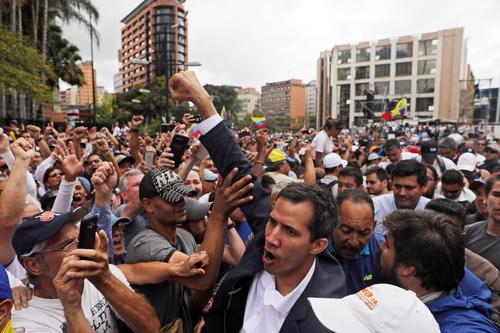Why Venezuela Matters: New York Times
Maduro has presided over Venezuela's corrupt and mismanaged government since 2013, with violence, hunger and hyperinflation. Maduro refuses to engage in peaceful transfer of power. Venezuela, with ample oil supplies, should be among the world’s wealthiest nations. Yet 30 million citizens must contend with unreliable food, electricity, medicine and other basic supplies. Maduro curtailed power for the judiciary and legislature, arrested numerous opposition leaders and allowed a humanitarian crisis to balloon before claiming victory in the May 2018 election. Charges of vote-rigging followed and since Maduro’s swearing-in ceremony in January, a massive opposition has regrouped, holding regular protests and insisting that Juan Guaidó, elected president of the National Assembly in January, is the country’s true leader. Then Maduro blocked borders and blocked aid while Guaidó called for new elections. About 50 nations, most of the Americas and Europe, recognize Guaidó as the legitimate head of state, while Russia, Cuba and Bolivia support Maduro. Both men realize that only Venezuela’s military can break the deadlock. Guaidó, standing inside a military base and calling for the president to resign, is underscoring how support for Maduro is crumbling. – YaleGlobal
Why Venezuela Matters: New York Times
Juan Guaidó, from within a Venezuela military base, calls for the troops to assist in ousting the failed government of Nicolás Maduro
Tuesday, April 30, 2019
Read the article from the New York Times about the political standoff and economic disaster in Venezuela.
Megan Specia is a story editor on the International Desk of The New York Times, specializing in digital storytelling and breaking news.

The New York Times
© 2019 The New York Times Company